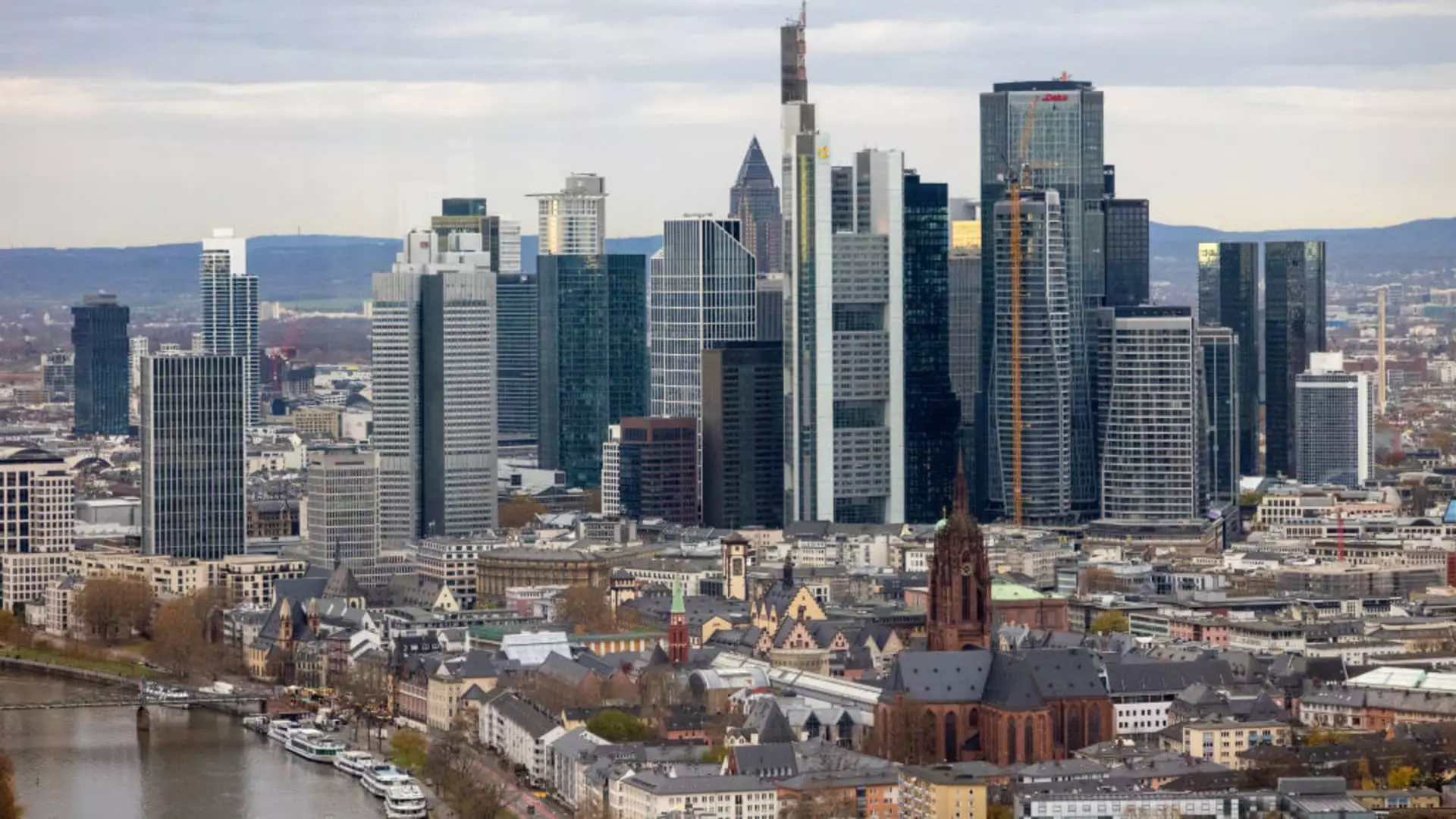As European markets edge into a new earnings season, there’s an unsettling undercurrent beneath the surface: a fragile veneer of resilience masking deeper vulnerabilities. Leading analysts and financial institutions project optimism, pointing to relatively robust first-quarter figures, yet this façade may be dangerously deceptive. The apparent strength in major banks like Unicredit, BNP Paribas, and Deutsche Bank is less a testament to genuine economic vitality and more a reflection of strategic positioning amidst turbulent times. This self-reinforcing optimism, fueled by market expectations, risks blinding investors to the structural fragilities that threaten to undermine the very foundation of this supposed recovery.
The enthusiasm surrounding European banks is largely built on a narrow perception of earnings growth, dismissing the broader economic and geopolitical risks that loom large. The sharp gains in shares of banks like Unicredit—surging over 50% this year—are tempting but should be scrutinized critically. These gains are driven as much by speculation and hope for favorable M&A conditions as by solid financial fundamentals. Yet, the truth remains that European banks are operating amidst clouds of uncertainty: regulatory hurdles, geopolitical tensions, and macroeconomic headwinds persistently challenge their outlook. The assumption that these institutions can sustain a positive trajectory may be overly optimistic, especially considering mounting global tensions like the impending U.S. tariff threats, which undoubtedly will have ripple effects across European markets.
The Limitations of Corporate Reporting Amid External Threats
European financials are eager to shed light on their earnings reports, but the picture painted is inherently incomplete. Banks like BNP Paribas and Deutsche Bank highlight strong quarterly performances, yet these results are often inflated by transient factors such as market volatility and trading volumes—phenomena that may not be sustainable in the long term. BNP Paribas, the flagship of eurozone banking, celebrated record-breaking profits driven by its investment banking prowess. Still, their revised targets reveal pragmatic caution, acknowledging the challenges inflammation and reduced profitability pose for future growth.
Similarly, Deutsche Bank’s recent profits, hailed as their best in over a decade, are heavily influenced by market conditions that could quickly reverse. This reliance on volatile trading activity exposes a fundamental weakness: these earnings are not necessarily indicative of underlying economic health but are more a derivative of current market dynamics. Such dependence on short-term trading blurs the line between genuine financial strength and tactical profit maneuvering. Moreover, management’s strategic ambitions, like Christian Sewing’s focus on bolstering Europe’s defense sector, seem disconnected from the immediate financial realities that threaten to erode the sector’s stability.
The Central Bank Dilemma: Cautiously Maintaining Status Quo
Turning from banking specifics to macroeconomic policy, the ECB stands at a crossroads—a decision that embodies the precarious balance between stability and vulnerability. The upcoming meeting led by Christine Lagarde is framed as a status quo in rate policy, with expectations to hold at 2%. However, this stability is fragile, heavily contingent on external factors—most notably, the unpredictable nature of U.S.-EU trade relations. The looming threat of a 30% tariff on EU imports, driven by Trump’s protectionist stance, could force a sudden pivot from the ECB to cut rates, undermining the very effort to maintain economic stability.
This situation underscores the peril of assuming current policies will be sufficient in the face of geopolitical upheaval. While central bankers claim confidence that tariffs will not derail their plans, the underlying warning from Deutsche Bank and other macro strategists should not be ignored. Inflation remains underappreciated, with risks underestimated, especially amid rising global tensions and trade uncertainties. Policymakers might believe they are maintaining a balanced approach, but the truth is, European economies are more exposed than most realize to external shocks that could destabilize the fragile equilibrium. Too often, complacency and optimism obscure the dangerous potential for economic disruption, which could come swiftly and with little warning.
Critical Reflection: A Wake-Up Call for Europe’s Financial Future
The current narrative of resilience in European banking is a carefully constructed illusion—one that might mislead investors and policymakers alike into complacency. While the financial institutions display impressive growth figures, their real health is masked by a reliance on market volatility, speculative gains, and external fiscal policies. The risk is that assumptions about continued growth and stability are overly optimistic, and in single misstep—be it a geopolitical confrontation or a sudden market downturn—the entire system could be jeopardized.
European policymakers and financial institutions must confront the uncomfortable truth: the foundation of this supposed recovery is less concrete than it appears. Dependency on external factors, delayed recognition of inflation risks, and a myopic focus on short-term gains threaten to leave Europe unprepared when the next crisis strikes. If anything, the current climate demands a more cautious, skeptical approach—one that recognizes vulnerabilities rather than dismisses them in the pursuit of positive headlines. The future of Europe’s financial health depends not merely on riding the wave of current optimism but on confronting the systemic weaknesses buried beneath the surface.


Leave a Reply